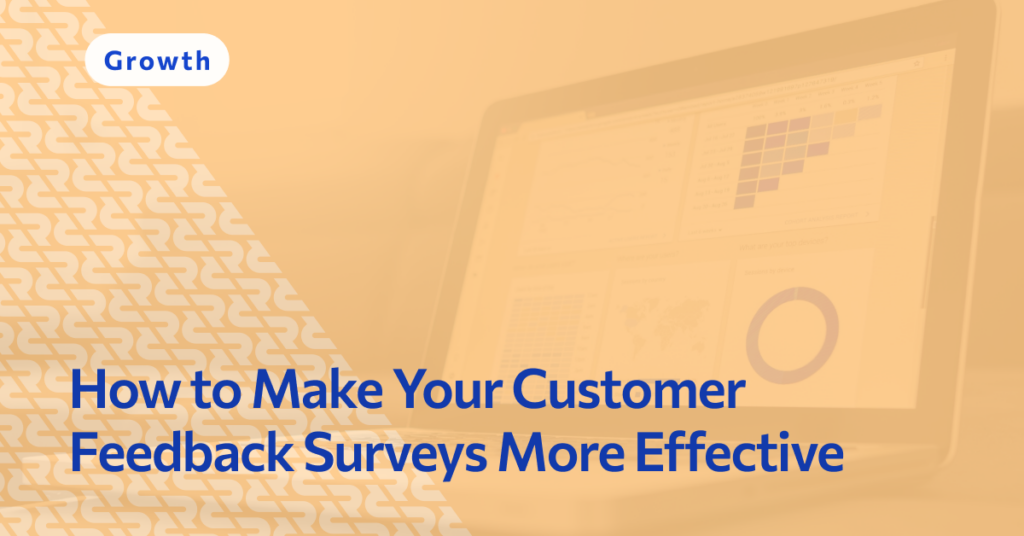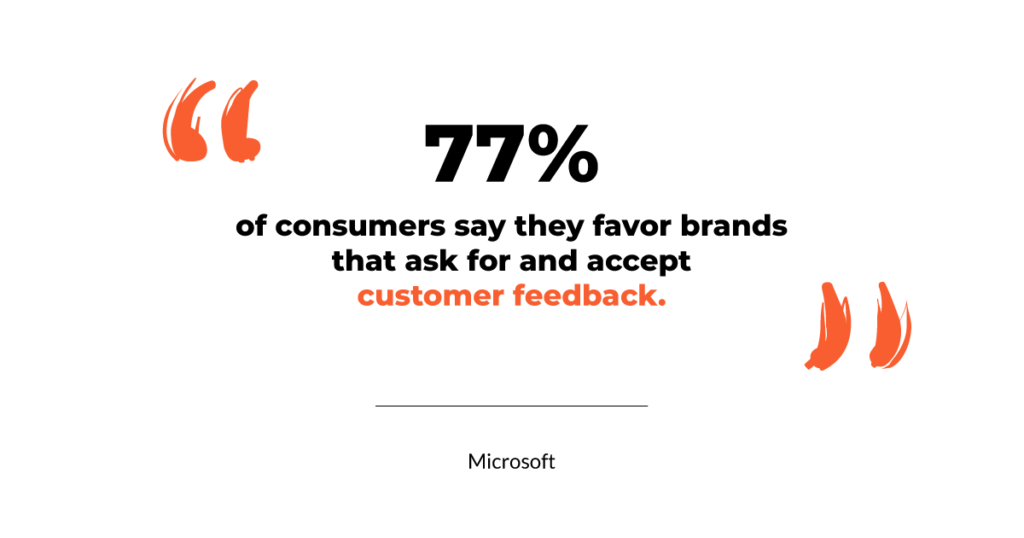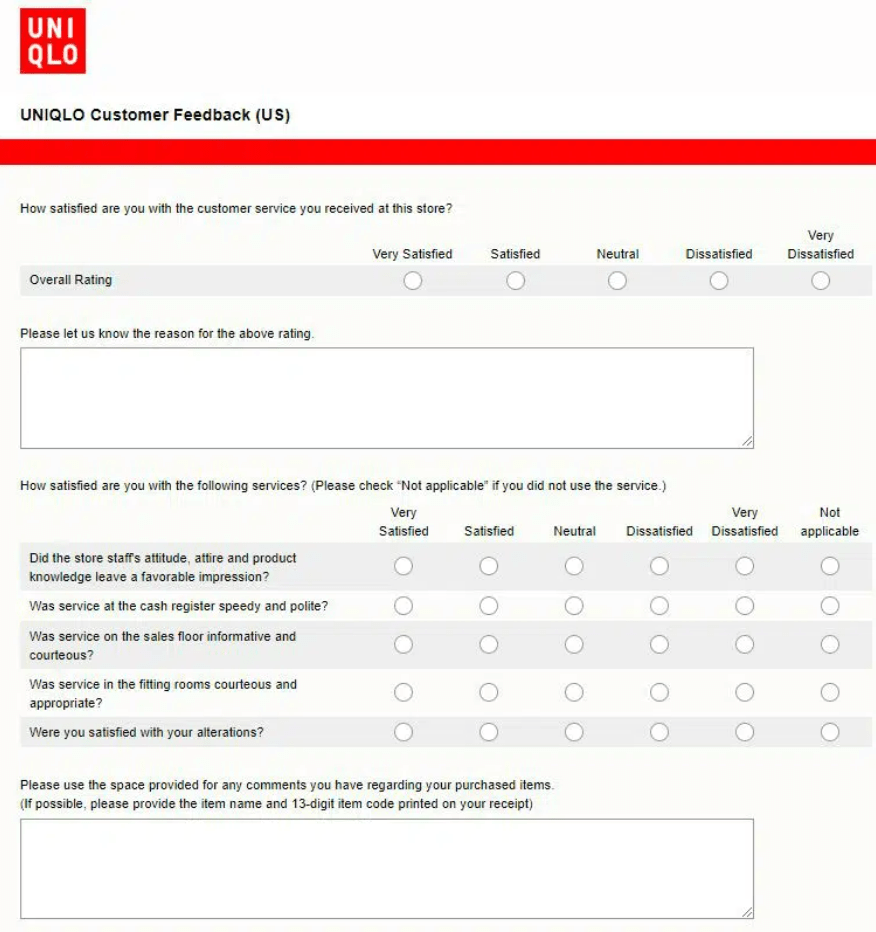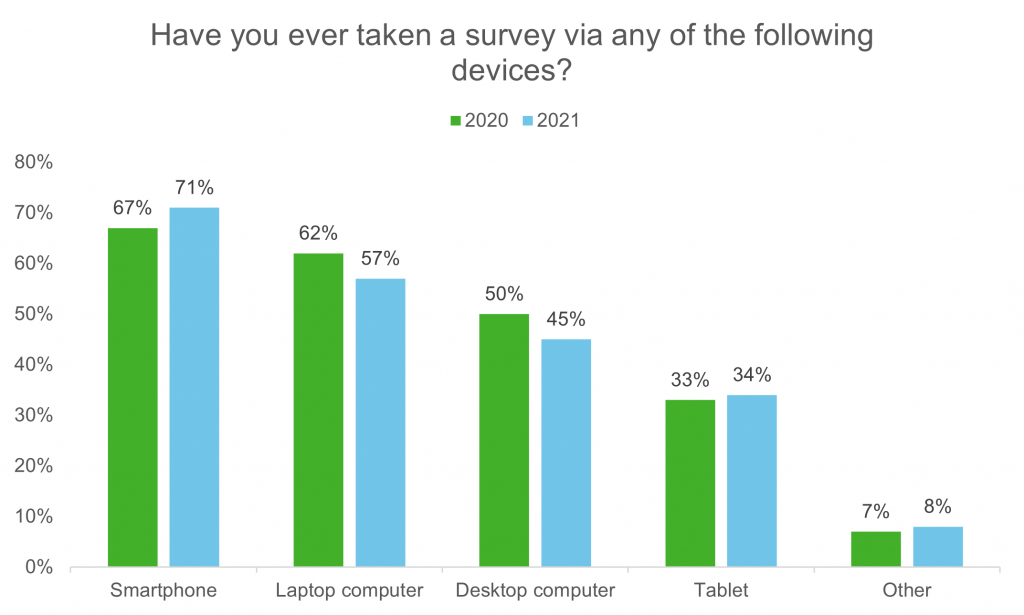How to Make Your Customer Feedback Surveys More Effective

Customer feedback surveys are a core component of modern marketing and sales. You need feedback to align with customer needs and preferences, personalize customer experiences, refine your strategies, and continually improve your product/service offerings. Surveys are one of the best ways to get insights directly from the source.
So: What exactly gets included in a customer feedback survey? How do you build one? How do you send one? And how can you optimize responses?
In this guide, we’ll cover these questions and more. What follows is your complete guide to creating customer feedback surveys that deliver real and valuable insight, have high response rates, and translate to meaningful business results.
Quick Takeaways:
- Customer feedback surveys give you direct, accurate insight about customer needs, preferences, and opinions.
- More than three-quarters of consumers favor brands who ask for and act on customer feedback.
- Key benefits of customer feedback surveys include: informed decision making, enhanced customer experiences, competitive advantages, and higher levels of product/service innovation.
- Customer feedback survey best practices include: clear and concise questions, optimized timing, personalization, incentives, and a mix of qualitative and quantitative data collection.
- Marketing automation tools enable you to trigger emails at optimal times throughout the customer journey.
What Are Customer Feedback Surveys and Why Should You Do Them?
Customer feedback surveys are powerful tools for gathering insights directly from your customers. They include carefully-crafted questions aimed at understanding customer experiences, preferences, and opinions. By capturing this information, your company can make informed decisions that enhance your products, services, and overall customer satisfaction.
Collecting feedback directly from customers is the only way you can be sure you have an accurate understanding of how customers feel about your brand.
The alternative—making assumptions based on indirect insights—is ineffective, as demonstrated by the massive gap between the percentage of CEOs who believe their companies deliver a superior customer experience (80%) and the percentage of customers who actually agree (8%).
Further, people want to buy from companies that care about how customers feel—77% of consumers say they favor brands who ask for and accept customer feedback.

The importance of customer feedback surveys in today’s highly competitive, customer-focused B2B landscape cannot be overstated. They provide a direct line of communication between your business and your customers, enabling you to understand them and serve them better.
The Benefits of Conducting Customer Feedback Surveys
Customer feedback surveys offer several advantages to your business that you can use to uplevel your product/service offerings and refine your marketing, sales, and customer success strategies to be most effective. These benefits include:
Insights-Based Understanding
When you conduct frequent customer feedback surveys, you take the guesswork out of understanding your customers. You get direct insights that help you grasp which products, services, and messages are resonating with your customer base and which ones may need improvement.
Informed Decision-Making
Armed with direct customer feedback, your business can make strategic decisions that align with customer preferences. Whether it’s refining a product feature or adjusting service processes, data-driven choices lead to more successful outcomes.
Enhanced Customer Experience
When you actively seek and act on customer feedback, you demonstrate your commitment to providing an exceptional customer experience. This fosters trust and loyalty among your customer base.
Competitive Advantage
By continuously refining your offerings based on feedback, you can gain a competitive edge. Your ability to adapt and evolve in response to customer input sets you apart from competitors who might overlook this crucial step.
Product Innovation
Customer feedback surveys can be a breeding ground for innovation. Often, customers offer suggestions that can spark new ideas or uncover unmet needs, leading to the development of groundbreaking new products, services, and experiences.
Customer-Centric Approach
Listening to your customers through surveys sends a clear message that you value their opinions and are committed to meeting their needs. This customer-centric approach can significantly enhance your brand perception.
9 Ways to Make Your Customer Feedback Surveys More Effective
Use Clear and Concise Questions
Customer feedback surveys should be easy to understand. Avoid using jargon or complex language that could confuse respondents. Use simple language to ask specific questions that address the aspects you want feedback on. Ambiguous or vague questions can lead to inaccurate responses.
Be Intentional about Metrics You Measure
Identify the key metrics and goals you want to measure through the survey. Whether it’s customer satisfaction, product usability, or service quality, tailor your questions to capture the most relevant information. Prioritize these key metrics to avoid survey fatigue and gather focused insights.
Use a Mix of Question Types
Use a variety of question types to keep your surveys engaging and gather different types of information. This could include multiple-choice questions, rating scales, and open-ended questions. Mix quantitative questions (for measurable data) with qualitative questions (for deeper insights), as shown in the example survey below.

Make Your Surveys Short and Timely
Respect your customers’ time by keeping feedback surveys short and focused. Long surveys can lead to respondent fatigue and incomplete submissions. Prioritize the most important questions and aim for a survey that can be completed within a few minutes.
For maximum effectiveness, send surveys with strategic timing, such as directly after a purchase or an important interaction with your team. Marketing automation tools can help you trigger surveys at these times automatically so you don’t have to execute this step manually (and potentially miss it).
Personalize Content
Tailor the survey experience to each respondent by adding personalization elements. Use their name and reference their recent interactions or purchases to show that you value their unique feedback. The timing of your surveys (as mentioned above) also contributes to personalization.
Offer Incentives for Completing Surveys
To boost response rates, offer incentives for completing feedback surveys. Incentives may include discounts, freebies, or entries into a contest. However, be transparent about incentive and avoid making it the sole motivation for completing the survey. The feedback’s value should be emphasized.
Use Mobile-Friendly Design
Ensure your survey is mobile-friendly, as many respondents may access it from their smartphones or tablets. Responsive design ensures a smooth experience across various devices and platforms and aligns with current customer behavior—mobile phones are the top-used method for survey completion.

Analyze Feedback and Take Quick Action
Develop a plan for analyzing the collected feedback and implementing necessary changes based on the insights gained. When you share how you plan to use the feedback to improve products or services, you encourage more participation in future surveys.
Refine and Improve
After analyzing the feedback and implementing changes, close the feedback loop by communicating the improvements made to your customers. This demonstrates that you value their input and leads to higher levels of customer loyalty and trust.
The Feedback Difference
Customer feedback surveys are indispensable for businesses to excel in today’s customer-driven B2B landscape. They provide direct insight into the mind of the customer, and can help you align product, service, and experience delivery with your customers’ preferences and needs.
Unlike other types of surveys—like customer satisfaction or customer service surveys—feedback surveys are more holistically focused on opinions about the entire brand experience. They provide wider-scope insights that you can apply to different aspects of your business. These insights are invaluable for driving innovation, strengthening customer relationships, and accelerating growth.
RevBoss can help you execute targeted outbound strategies that include effective customer feedback surveys. Our platform and services are custom-built for startups, consultancies, marketing agencies, and other B2B organizations.
Schedule a quick call with us to learn more and get started.
